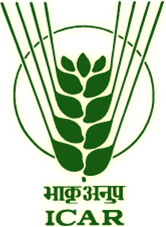Research Achievements
Explore our groundbreaking research and innovations in grape cultivation
New Grape Varieties
The National Research Centre for Grapes has developed several new grape varieties suitable for different agro-climatic conditions in India. These varieties exhibit improved yield, quality, and resistance to pests and diseases.
The center has successfully introduced 5 new commercial varieties in the last decade, with productivity gains of 20-25% compared to traditional varieties. Our most successful variety, 'NRC Purple', has become particularly popular in Maharashtra for its excellent sugar-acid balance and disease resistance.
Field trials have shown these new varieties can adapt to varying climatic conditions while maintaining consistent fruit quality. Farmers adopting these varieties have reported 30% higher profits due to reduced input costs and better market prices.
Cultivation Practices
Innovative cultivation techniques developed by our researchers have revolutionized grape farming in India, leading to significant improvements in yield and resource efficiency.
Our precision farming package includes optimized pruning techniques, canopy management systems, and micro-irrigation scheduling that have helped farmers reduce water usage by 35% while increasing yield by 18-22%. The center's patented 'High Density Planting System' allows for 40% more plants per acre without compromising fruit quality.
We've also developed specialized fertigation protocols that improve nutrient uptake efficiency by 50%. These practices are now being adopted by over 15,000 farmers across major grape-growing regions, resulting in collective savings of millions of liters of water annually.
- Water-saving irrigation systems
- Optimized pruning techniques
- High density planting methods
- Precision nutrient management
Pest Management
Our integrated pest management strategies have dramatically reduced pesticide use while maintaining effective control over grape pests and diseases.
The center has identified and commercialized 7 biological control agents that specifically target major grape pests like thrips and mealybugs. Our pheromone-based monitoring and trapping systems have reduced pesticide applications by 45% in participating farms.
We've developed a revolutionary 'Pest Prediction Model' that uses weather data and growth parameters to forecast pest outbreaks with 85% accuracy, allowing for timely and targeted interventions. This system has helped farmers reduce crop losses from pests from 25% to just 8%.
Our research on pesticide residue management has established safe harvest intervals that ensure compliance with international food safety standards, opening up new export opportunities for Indian grape growers.
Post-Harvest Tech
Innovative post-harvest technologies developed at our center have significantly extended shelf life and reduced losses in the grape value chain.
Our Modified Atmosphere Packaging (MAP) technology extends grape shelf life from 7 to 21 days without refrigeration, revolutionizing domestic distribution. For export markets, we've developed a cold chain protocol that maintains quality for up to 45 days.
The center's 'Grape Quality Enhancer' treatment improves berry firmness and stem freshness, reducing shattering during transport. We've also introduced a non-chemical fumigation technique using ozone that meets international phytosanitary requirements.
These technologies have helped reduce post-harvest losses from 25% to less than 8%, adding an estimated ₹500 crore annually to the Indian grape industry's revenues. Our packaging solutions are now used by 60% of grape exporters in the country.


